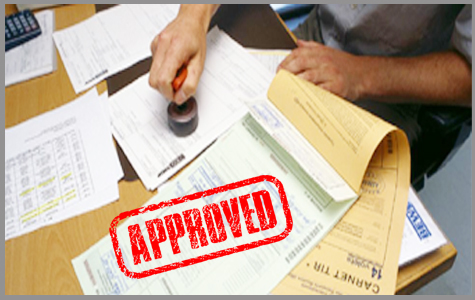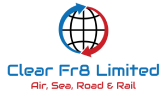Import Livestock to the UK: Regulations, Procedures, and Animal Welfare Considerations
The importation of livestock to the United Kingdom (UK) is a carefully regulated process that involves stringent measures to ensure the health, welfare, and safety of the animals, as well as to protect the domestic livestock industry.
The UK has implemented comprehensive regulations, procedures, and frameworks to govern the importation of livestock. These regulations are designed to ensure that only healthy and disease-free animals are imported, and that they are transported and handled in a humane way.
The importation process begins with the importer submitting an application to the Animal and Plant Health Agency (APHA). The application must include information about the type of livestock being imported, the country of origin, and the method of transport.
Import Livestock
Regulations and Considerations
Importing livestock to the UK requires strict adherence to regulations to protect animal health and welfare. The Animal Health and Welfare (Amendment) (EU Exit) Regulations 2019, along with other relevant legislation, provide the legal framework for importing animals into the country. These regulations outline the requirements for disease testing, quarantine periods, and vaccination protocols that must be followed before importation.
Importers must also consider specific import conditions set by the UK Department for Environment, Food and Rural Affairs (Defra) for different livestock species. These conditions take into account the disease prevalence in the country of origin and aim to prevent the introduction of contagious diseases into the UK livestock population.
The importation of rare or endangered species is subject to additional regulations under the Convention on International Trade in Endangered Species of Wild Fauna and Flora (CITES). Importers must comply with the CITES guidelines to ensure the protection and conservation of these species.
Furthermore, importers must address the welfare implications associated with transporting livestock over long distances. The animals must be fit for travel, and suitable transport vehicles and resting areas must be provided to minimize stress and ensure their well-being during transit.
Relevant Laws and Agencies
Several laws and agencies in the UK oversee the importation of livestock and enforce the necessary regulations. The Animal and Plant Health Agency (APHA) is responsible for implementing and enforcing regulations related to animal health and welfare. APHA conducts inspections, disease surveillance, and risk assessments to ensure compliance with import requirements and prevent the introduction of animal diseases.
The UK Border Inspection Post (BIP) network, operated by the APHA and the Border Force, is responsible for inspecting animals and animal products at designated points of entry. BIPs verify compliance with import regulations, conduct health checks, and monitor the welfare of imported animals.
The Food Standards Agency (FSA) oversees the importation of animals for slaughter and ensures that the imported meat meets food safety standards. The FSA works to guarantee that imported animals are fit for human consumption and that the necessary inspections are carried out to maintain food safety.
Documentation Requirements
To import livestock into the UK, specific documentation is required to ensure traceability, animal health, and compliance with regulations. The Common Veterinary Entry Document (CVED) is a key document that provides information about the imported animals, including their origin, health status, and vaccination history. The CVED is issued by an official veterinarian in the country of export and is verified by the APHA at the UK BIPs.
Importers must also provide an International Animal Health Certificate (IAHC), issued by the competent veterinary authority in the country of origin. The IAHC certifies that the animals meet the import requirements, including disease testing, quarantine, and vaccination protocols.
In addition to animal-specific documentation, importers must comply with customs requirements and provide the necessary import documentation, including commercial invoices, bills of lading, and import licenses where applicable. These documents ensure the proper declaration of imported livestock and facilitate customs clearance procedures.
Animal Welfare Considerations during the Importation of Livestock
The welfare of imported livestock is of utmost importance throughout the importation process. Importers are responsible for ensuring the animals' welfare, including their health, safety, and comfort during transportation and upon arrival in the UK.
Importers must ensure that animals are fit for travel before the journey begins. This involves assessing the health and condition of the animals, including freedom from injuries or illnesses that could be exacerbated during transportation. Importers must also consider the appropriate stocking densities to prevent overcrowding and allow for sufficient space for each animal to stand, lie down, and turn around comfortably.
During transportation, suitable transport vehicles that comply with animal welfare standards must be provided. These vehicles should be well-ventilated, clean, and designed to minimize stress and injuries. Importers must also consider the duration of the journey and provide appropriate resting periods, access to water, and feed for the animals, according to their specific needs.
The appointment of trained and competent handlers is crucial to ensure the welfare of the animals during loading, unloading, and transit. Handlers should be knowledgeable about animal behavior, stress indicators, and emergency response procedures. Regular monitoring of the animals during transportation is essential to identify and address any signs of distress or health issues promptly.
Upon arrival in the UK, imported livestock undergo veterinary checks at designated BIPs. These checks verify compliance with import regulations and ensure that the animals meet the required health standards. Veterinary professionals assess the animals' health, well-being, and documentation to confirm their eligibility for entry into the country.
Importing livestock to the UK involves adhering to stringent regulations, thorough documentation, and a focus on animal welfare. The UK government, through agencies such as APHA, BIPs, and FSA, ensures compliance with regulations, monitors animal health, and safeguards animal welfare during the importation process. By following these regulations and considerations, importers contribute to maintaining the health, welfare, and safety of imported livestock and the domestic livestock industry.
DOCUMENT REQUIREMENTS
- Certificate of Origin
- Bill of Lading
- Packing List
- Commercial Invoice
- Customs Clearance

